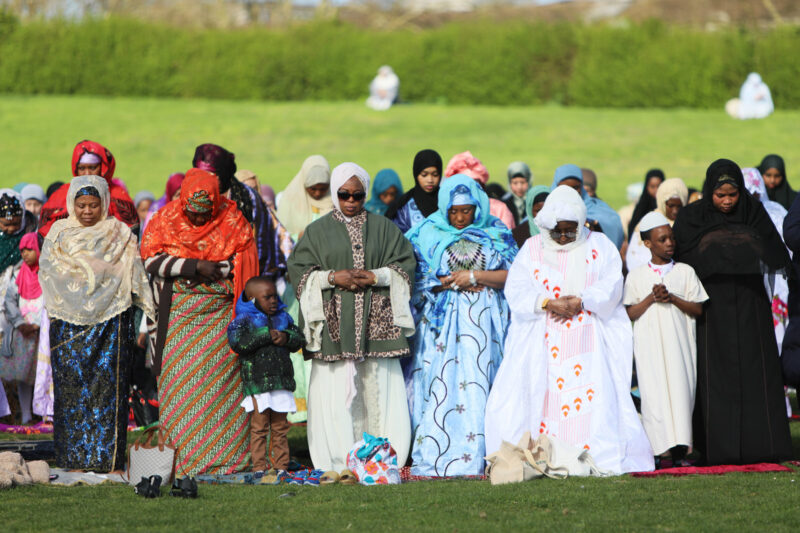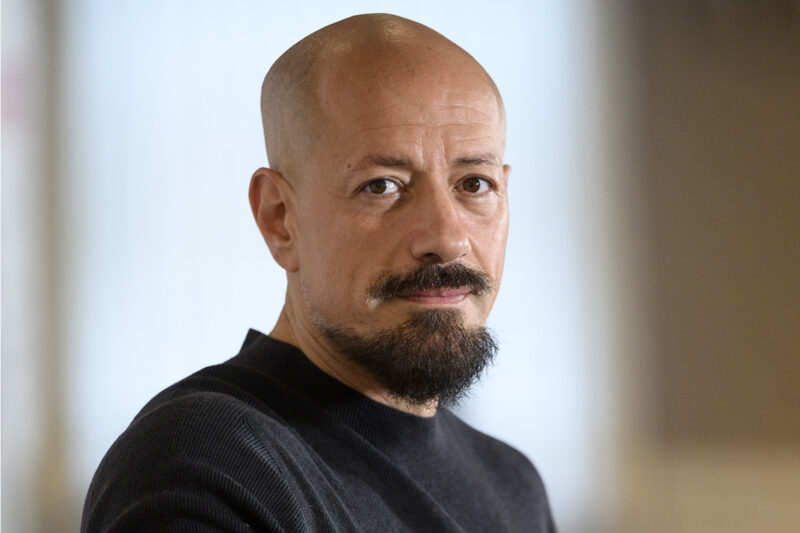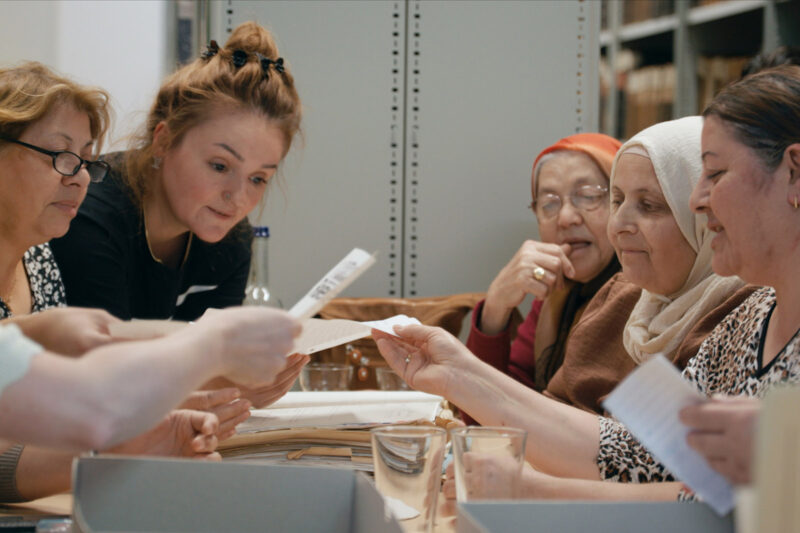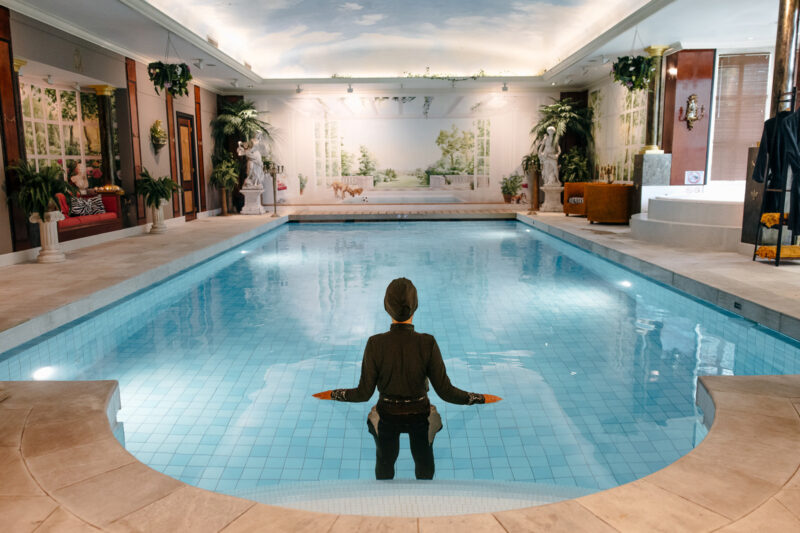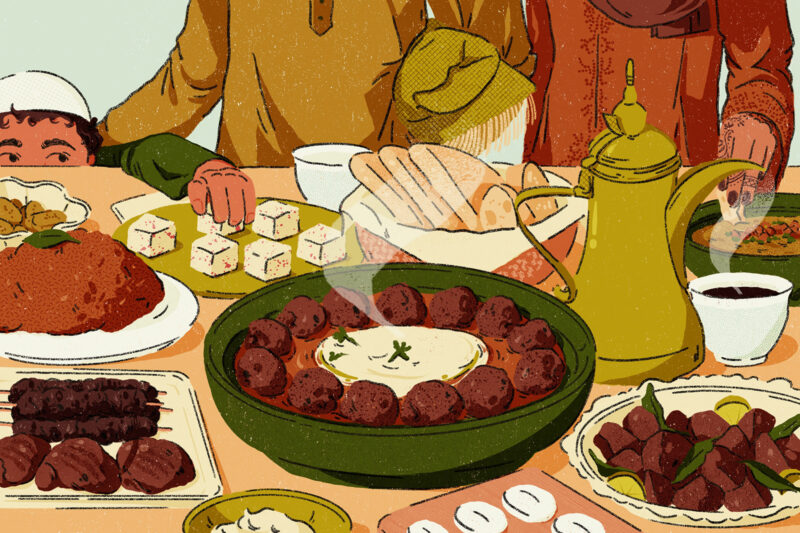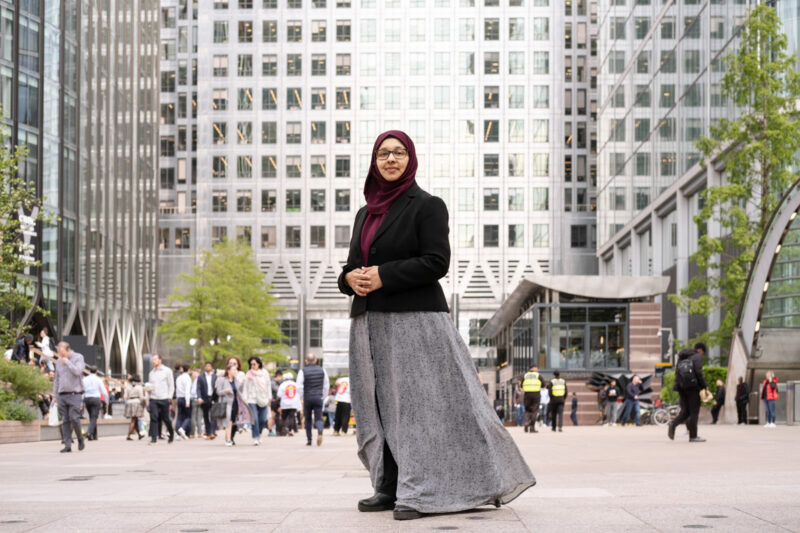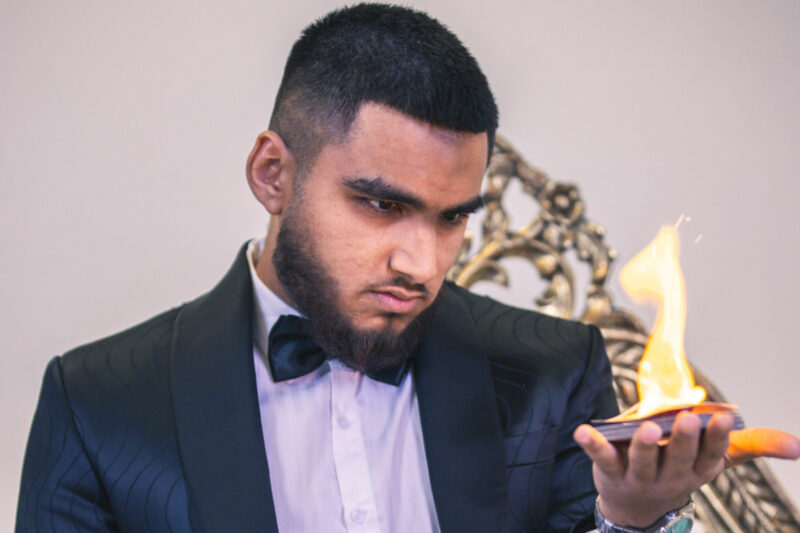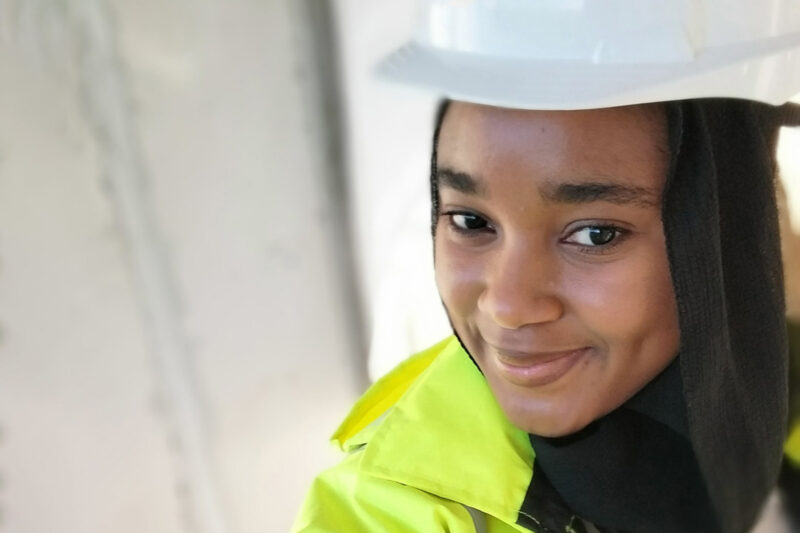Ramadan where the sun never sets
Families living around the Arctic Circle are divided over how to fast during a holy month with up to 23 hours of daily sunlight
–

About 100km north of the Arctic Circle, surrounded by snow-capped mountains, lies the small Swedish town of Gällivare. Lina Farhat — a Palestinian raised in Beirut — moved here as a teenager in 1995. She remembers her first winter in Sweden as a wonderland, an unreal landscape of snow and endless nights, the sun rising for two hours and temperatures regularly dropping to -40C.
“It was a complete surprise during our first Ramadan how short the days were, it felt like we were cheating the system,” said Farhat, now 44 and a single mother of two. “Only three other muslim families lived in Gällivare when we moved in but they all left after the first year.”
Norrland, Sweden’s northernmost region, spans more than half the country but is home to just 12% of its population. In its far north, the sun never rises in winter and in summer it never sets. For Muslims here, the problem of how to manage long days during Ramadan is a well-debated — and occasionally divisive — conundrum.
This year, Ramadan falls in early spring with a manageable 14 hours of daylight per day. But between 2012 and 2020, the holy month included some of the longest days of the year. In Gällivare, the sun only set between 11.40pm and 1.20am leaving less than two hours a day to eat and drink. In cities even further north, like Kiruna, the sun was still hanging in the sky at midnight.
Previously, the guideline for Muslims in these northern areas was to observe Ramadan by the hours of sunlight in the Swedish capital Stockholm, but this still meant up to 21 hours of fasting. In 2015, several imams from the European Council for Fatwa and Research (ECFR) travelled here to investigate the problem. It has not yet reached a definitive solution but two years ago, issued new recommendations that prayer and fasting times be calculated according to the last day with a clear sunrise and sunset. This still does not work for many of Norrland’s Muslims.
Rizwan Afzal, an imam with the Ahmadiyya Muslim Community in Sweden, explains that when Ramadan falls during the summer, some of his congregation follow the Saudi Arabian timetable, because it is the heartland of Islam. Others follow the fasting times in Istanbul, since Turkey is the closest Muslim country to Sweden.
“There are also those who follow Stockholm’s timetable or even Umeå [the largest city in Norrland], it’s different for everyone because there is still no general rule. Muslims can decide for themselves,” Afzal said.
Having consulted the Ahmadiyya community’s chief imam in London, Afzal now recommends Luleå muslims fast for 18 hours during the long summer days and eight hours during the winter, starting at sunrise.
“Our recommendation during the endless days is to not follow the sun, because it can stay up for 23 hours, you cannot fast for that long,” he said.
Farhat disagrees with the idea that Muslims can adapt the rules according to their circumstances. “[It has] created divisions even within families. I have a friend who follows local time while her husband wants to follow Turkey,” she said. “The Qur’an says to fast from dawn to dusk, so that is how we have to do it.”
Since childhood, she has fasted during the hours of natural daylight during Ramadan, regardless of how long it takes. Since moving to Umeå 23 years ago — a town around 400km south of her childhood home in Gällivare — the longest she has fasted is 22 hours. She admitted her body can struggle and she is usually bedridden with a migraine for the first two days of Ramadan but said she quickly gets used to fasting.
Now her two teenage children — aged 16 and 13 — have started celebrating with her, the family gathers around the dinner table to break their fast together with dates and water, according to the Middle Eastern tradition Farhat was raised in. It is a ritual that can make her homesick.
“In Lebanon, we all used to hear the call to prayer and knew that everybody broke the fast together. But in Sweden everyone exists in their own bubble, we can’t just run over to the neighbour and have iftar together. There is no unity here, it feels like we’ve lost a sense of belonging,” Farhat said.
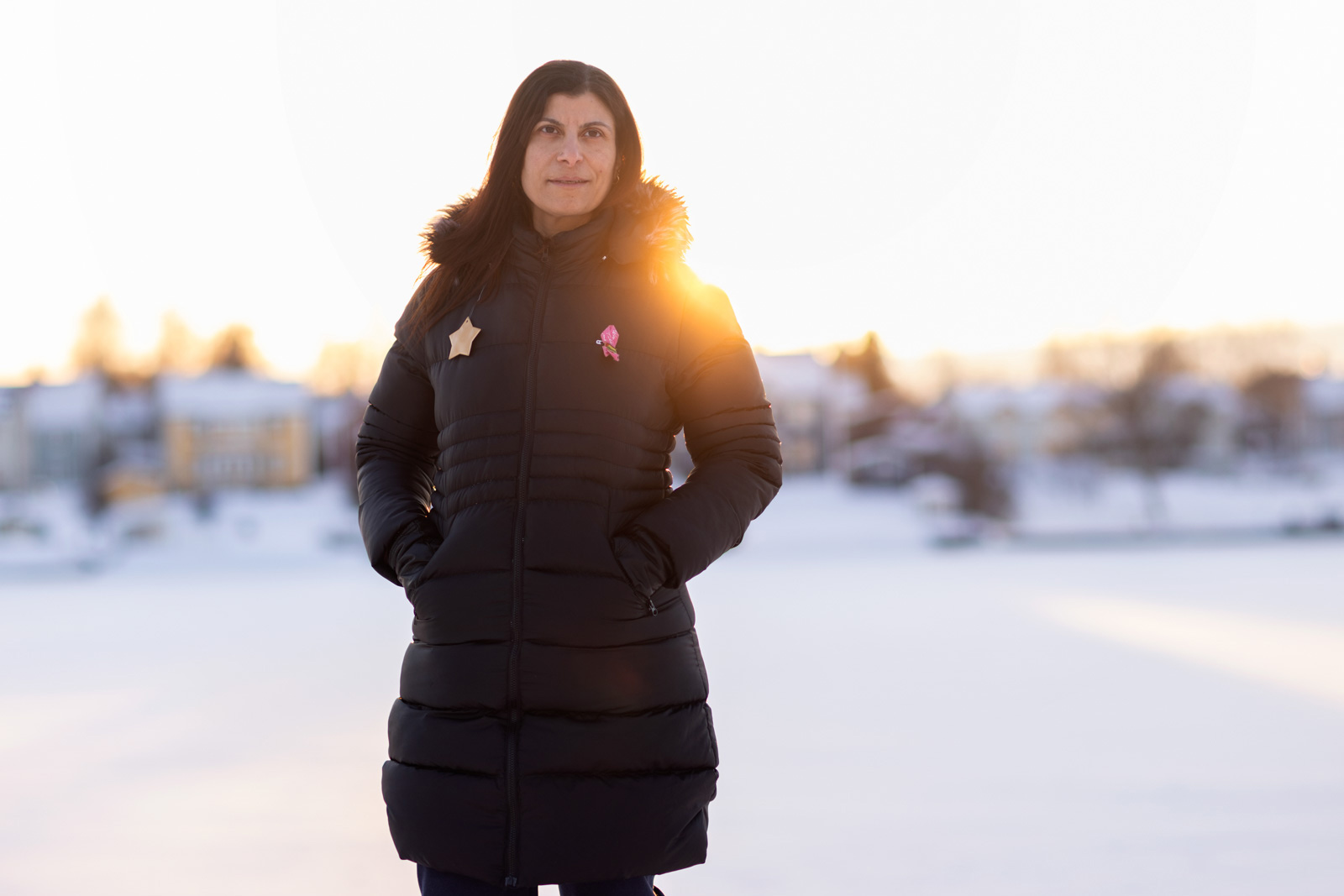
This year might have to be different. Having undergone surgery for breast cancer a few months ago, Farhat worries that she might not be able to fast for the entire month. Even so, she is looking forward to the peaceful silence during her moments of prayer and dedicating them to the people suffering in Gaza, which as a Palestinian, moves her greatly.
“I’ve started practising during the weekends from now on until Ramadan starts in March just to see if my body can handle it with the medications. And I will keep Gaza extra close in my prayers, my heart is with them all the time,” she said.
Egyptian Ahmed Saad spent his first Ramadan in Luleå in 2018 when it fell between 16 May and 14 June. The father of four quickly realised his new community was deeply divided on how to handle the fast. Like Farhat, he missed celebrating at home surrounded by friends, family and neighbours all united by the same schedule.
“We were very confused and didn’t know what to do. How should we break the fast when the sky never gets dark? There was no dawn at all, the sky was orange in the middle of the night,” the 43-year-old pharmacist said.
He felt it would be impossible for his children to fast for more than 22 hours as the families in Luleå following natural light did. After searching various fatwas and contacting imams in Egypt, Saad and his family began fasting according to Mecca time. They counted the hours from the scarce sunrise at around 1.30am and fasted for 15 hours, breakfasting with dates and milk while sunlight still shone through the windows.
“It felt so strange, like we did something wrong. What if our siam [fast] would not be received by God?” Saad said.
Since the ECFR issued its advice to fast according to the last day of a clear sunset, the family practice that and have found a greater sense of community.
“For the first time, we noticed that other Muslims around us were breaking their fast at the same time. The mosque in Luleå has held a big iftar for everyone that wants to join. It has been amazing to gather children, women and muslims of all ages and nationalities,” he said.
“We try to make it festive in our own way. We always start preparing a month before by filling the apartment with festive candles and lanterns, tablecloths from Egypt in red and gold. The apartment looks completely different.”
As the Saad family prepares for Ramadan this year, they feel grateful that the tough summer days have passed and they will not be fasting longer than 14 hours a day. A calendar hanging on their kitchen wall is packed with activities to keep the youngest engaged, including competitions for who can do the most good deeds.
“We plan which days we will donate money or clothes to the poor, which evenings we spend reading the Qur’an to each other, or opening small envelopes containing a hadith,” he said. “Now we’re grateful, but for a couple of years it was difficult.”
 Newsletter
Newsletter

